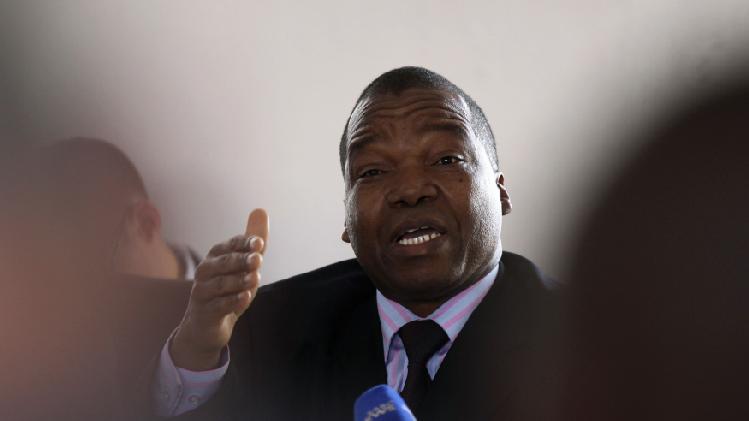The Reserve Bank of Zimbabwe (RBZ) is considering tightening screws on the banking sector by planning to make public bank ratings which show the health of banks to protect depositors, a senior central bank official has said.
There has been public outcry in the past over the central bank's reluctance to inform the public about the state of ailing banks before their closure.
Many banking institutions have collapsed, with several reports pointing to poor corporate governance and mismanagement for their failure. Banks which have gone under include Genesis Bank, Interfin, AfrAsia, Tetrad, Royal, Capital Bank, Trust, Allied and AfrAsia, among others
Speaking at the Institute for Sustainability Africa (Insaf) 2017 Annual Shareholders and Investors Forum in Zimbabwe, held at Celebration Centre in Harare, RBZ director of bank supervision Norman Mataruka said although banks were hesitant on ratings to be published, doing so was necessary as it would help depositors know the truth about the state of affairs at the institutions and make informed decisions.
Mataruka said most Zimbabwean banks have collapsed due to poor corporate governance practices and mismanagement which prejudice depositors.
"We were arguing some other time with a certain bank; we were telling them that in order for corporate governance matters to be taken seriously by banks, RBZ should start disclosing bank ratings so that depositors make their own wise decisions as to which bank to put their money with," said Mataruka.
He said poor corporate governance by directors and senior managers of banking institutions are largely to blame for bank failures.
Mataruka said in any case it is already a requirement that when banks publish their annual and semi-annual financial statements, they must also publish supervisory ratings. He also told the forum that huge amounts of bank insider loans were also to blame for the collapse of financial institutions.
On the current cash crisis, Mataruka blamed big companies who handle cash daily of not make deposits. He said some of the companies were externalising money.
"The little foreign currency being generated is being externalised. The banks are only getting coins from these big institutions and supermarkets as that is all that they deposit. The notes will be destined elsewhere," he said. According to Insaf, a number of companies have collapsed due to poor corporate governance while shareholders and investors watch. The investor's forum agreed that it will develop a Code on Responsible Investing in Zimbabwe. The code is expected to outline responsible investing values and practices, corporate disclosure requirements while promoting space for effective minority shareholders voices. Mataruka endorsed the development of the code.
Insurance, Pension and Provident Funds Commissioner Tendai Karonga said without good corporate governance and disclosure, the integrity of capital markets is threatened and this may undermine economic growth.
"It goes without saying that indeed corporate governance has a strong bearing on the character of the country's capital markets," said Karonga.
"It is therefore critical that listed companies and other players in the capital market uphold the highest standards of corporate governance and transparency so as to attract investment as well as to satisfy stakeholder needs."
- the independent
 Concern over Masvingo black market
Concern over Masvingo black market  Kenya declares three days of mourning for Mugabe
Kenya declares three days of mourning for Mugabe  UK's Boris Johnson quits over Brexit stretegy
UK's Boris Johnson quits over Brexit stretegy  SecZim licences VFEX
SecZim licences VFEX  Zimbabwe abandons debt relief initiative
Zimbabwe abandons debt relief initiative  European Investment Bank warms up to Zimbabwe
European Investment Bank warms up to Zimbabwe  Young Investment Professional (YIP) Graduate Programme 2019
Young Investment Professional (YIP) Graduate Programme 2019 











 Young Investment Professional (YIP) Graduate Programme 2019
Young Investment Professional (YIP) Graduate Programme 2019
Editor's Pick